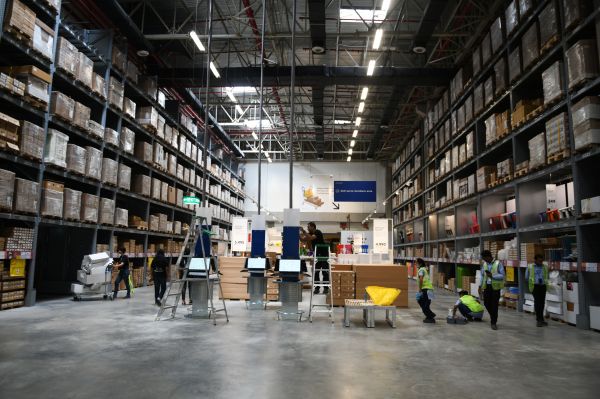
Despite e-commerce firms Amazon and Walmart and others pouring billions of dollars in India, offline retail still commands more than 95% of all sales in the world’s second largest internet market.
The giants have acknowledged the strong hold neighborhood stores (mom and pop shops) have in the country, and in recent quarters scrambled for ways to work with them. Mukesh Ambani, India’s richest man, has made the dynamics more interesting in the past year as he works to help these neighborhood stores sell online.
But the market opportunity is still too large, and there are many aspects of the old retail business that could use some tech. That’s the bet WareIQ, a Bangalore-headquartered, Y Combinator-backed startup is making. And it has just raised a $1.65 million Seed financing round from YC, FundersClub, Pioneer Fund, Soma Capital, Emles Venture Advisors, and founders of Flexport.
The one-year-old startup operates a platform to leverage the warehouses across the country. It has built a management system for these warehouses, most of which largely engage in offline business-to-business commerce and have had little to no prior e-commerce exposure.
“We connect these warehouses across India to our platform and utilize their infrastructure for e-commerce order processing,” said Harsh Vaidya, co-founder and chief executive of WareIQ, in an interview with TechCrunch. The company offers this as a service to retail businesses.
Who are these businesses? Third-party sellers, some of whom sell to Amazon and Flipkart and use WareIQ to speed up their delivery, e-commerce firms such as fashion e-tailer Nykaa, social commerce platforms such as Meesho as well as neighborhood stores, and social media influencers.
Any online store, for instance, can send its products to WareIQ, which has integrations with several popular e-commerce platforms and marketplaces. It works with courier partners to move items from one warehouse to another to offer the fastest delivery, explained Vaidya.
The infrastructure stitched together by WareIQ also enables an online seller to set up their own store and engage with customers directly, thereby saving fees they would have paid to Amazon and other established e-commerce players.
“The sellers were not able do this on their own before because it required them to talk directly to warehousing companies that maintain their own rigid contracts, and high-security deposits, and they still needed to work with multiple technology providers to complete the tech-stack,” he said. WareIQ also offers these sellers last-mile delivery, cash collection, and fraud detection among several other services.
“In a way, we are building an open source Amazon fulfilment service, where any seller can send their goods to any of our warehouses and we fulfil their Amazon orders, Myntra orders, Flipkart orders, or their own website orders. We also comply with the standard of these individual marketplaces, so our sellers get an assured tag on Amazon,” he said.
WareIQ is free for anyone to sign up with any charge and it takes a cut by the volume of orders it processes. The startup today works with over 40 fulfilment centres and it plans to deploy the fresh capital to expand its network to tier 2 and tier 2 cities, he said. It’s also hiring for a number of tech roles.

Recent Comments